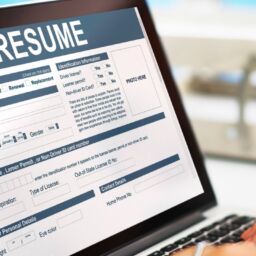
Gone are the days of punching in at 9 and leaving at 5. The modern workplace has undergone a transformation, with remote work and flexible hours becoming the norm. While these changes have brought about newfound freedoms, they have also made it harder to draw the line between work and life. With the rise of the gig economy and constantly connected devices, it has become more important than ever before to redefine what work-life balance means. In this blog, we will explore why the traditional division between work and personal life is outdated and provide holistic strategies for thriving in the modern workplace.
Firstly, it is essential to recognize that the traditional compartmentalization of work and life is no longer feasible in the modern world. The pandemic has accelerated remote work, which has become a permanent reality for many, creating a blurred line between work and home life. Therefore, it is becoming increasingly vital to integrate work and personal life in all aspects. For instance, replacing the traditional lunch break with a daily walk or a quick online shopping or cooking a healthy meal for the family during the office hours can allow employees to tend to personal responsibilities while making the most of their workday. Encouraging employees to shift their mindset towards a more holistic approach to work-life balance will help them achieve a better balance and be more productive at work.
Secondly, it is necessary to set clear boundaries by scheduling uninterrupted blocks of time for both work and personal life. A clear and communicated schedule can do wonders for minimizing distractions and enabling employees to prioritize personal commitments without feeling guilty. This positive reinforcement can lead to increased productivity and lower stress levels, boosting overall job satisfaction. Furthermore, communicating personal commitments can also create an environment of mutual respect, where everyone appreciates the importance of balancing both work and personal responsibilities.
Thirdly, promoting mental health and physical wellbeing should be an integral part of every modern workplace’s health policies. Giving employees access to counseling services, providing meditation sessions, and delivering healthy meal options in the office can help mitigate preventable health issues. Regular check-ins with employees to ensure they are coping with stress and allocating time for hobbies, interests, and other personal engagements can ensure that the employee is happy within the organization. Promoting a culture that prioritizes personal and mental health can create a positive, inclusive, and productive environment.
Forthly, rethinking the concept of productivity from a traditional sense of time management to focus on outcomes can also enhance work-life balance. By measuring success based on the achievement of outcomes rather than the completion of tasks, employees can have more freedom to accomplish their goals while also tending to personal matters. By empowering employees to work towards goals that suit their schedule and align with their personal aspirations, organizations can foster an inclusive culture of accountability, ownership, and flexibility.
Lastly, empowering employees to feel more engaged in the workplace can improve their happiness and sense of fulfillment. When employees feel that their work is contributing to the success of a greater good, they are more likely to feel content with their work-life balance. Providing opportunities for employees to volunteer time and skills outside of work can increase this sense of fulfillment. Regular company-wide work celebrations promoting solidarity, team events, and rewarding individual employees with the time-off or creative benefits can also increase an employee’s overall well-being.
It is time to reimagine the traditional concept of work-life balance by promoting a more integrated approach. The modern workplace requires a new mindset, including strategies that prioritize mental and physical well-being, facilitate boundary setting, promote alternative measurements of productivity, and empower employees to feel engaged in their work-life integration. We hope this blog serves as a starting point and catalyst for organizations to implement holistic strategies that promote an inclusive and thriving modern workplace.

ABOUT JOB SKILLS
For 35 plus years, Job Skills has been delivering solutions to job seekers and moving people into sustainable, meaningful employment. Throughout their long history, Job Skills has recognized that not every job seeker is the same. There is no one size fits all employment program. That’s why the Job Skills vision is building an inclusive society where all people are ensured equitable opportunities to fulfill their career aspirations and participate fully in the community.
Job Skills’ employment specialists are there to answer any of your employment questions. Job Skills‘ staff offer solutions to all job seekers, including youth, newcomers, mature workers, persons with disabilities, and entrepreneurs. Job Skills’ knowledgeable team can help you make educated decisions, set goals, and create a strategy to help you become happier in your career. Job Skills works with local employers creating employment opportunities for Job Skills’ clients.
Thanks to government funding, Job Skills’ programs and services are free to all users. Job Skills have locations across Keswick, Stouffville, Markham, Brampton, and Mississauga. Job Skills also offers virtual services for community members unable to attend one of our offices for in-person activities.
Find your employment solution today. Visit www.jobskills.org
















